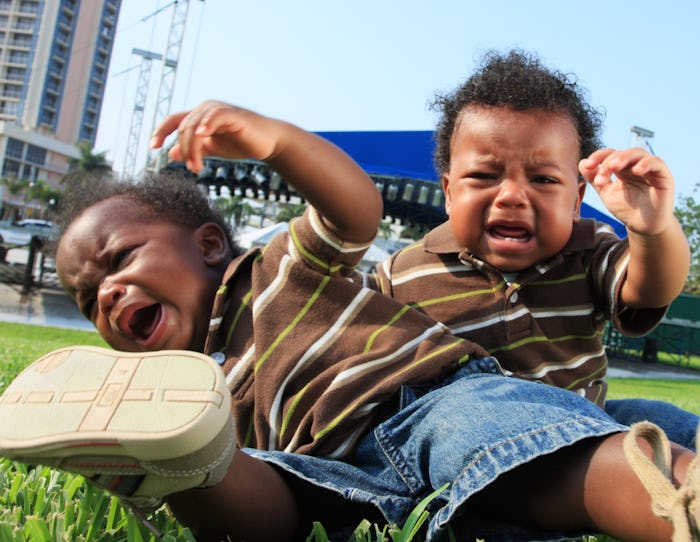You've just worked a long, hard day, and you're excited to pick your little one up from daycare. But when you head into their classroom, you don't get the wide open arms and massive gummy grin you were expecting from your baby. Instead, you get a screaming child that is absolutely terrified of you and now you're in a panic wondering, "Why is my baby afraid of me?"
The worst, right? As your baby's mother, all you want is to be the best mom you can be. You want to be the one they turn to when they're scared, when they're upset, or when they just want a cuddle. No one expects their baby to be afraid of them, especially when you're doing everything you can to make them comfortable, but it happens. In fact, it may not even happen at a daycare. Maybe you noticed it when your baby seemed to prefer your partner over you.
I know it's heartbreaking, but you have to trust me on this — it's just a phase.
Parents noted that a huge baby fear is separation and stranger anxiety. Although this usually means that your baby clings to you and is terrified of other people, it's not totally abnormal for it to go the other way, especially if you're not with your child every day or a primary caregiver. I know it hurts, but it doesn't mean you've done anything wrong. Babies focus on familiar and unfamiliar faces, especially when they are in a routine. If your partner stays at home with the baby, you may notice your child clings to them more than they cling to you. If you both work, you may find that your child is upset when you pick them up because they've spent most of their day with another caregiver.
You're also not alone in this plight. It's been highly documented that some children prefer their nannies and caregivers over their own mother because they are with them all the time, according to Forbes. In fact, many women have been known to feel jealous over their child's caregiver, especially if the baby seems to have an immense attachment with the nanny or babysitter. It's normal to be frustrated and upset about it, but it doesn't mean you're doing anything wrong, nor is your child.
Parents noted that this is totally normal behavior. In fact, it may waver back and forth where your child isn't scared of you for a few weeks, but then goes back to preferring another parent or caregiver. But according to Parents, the worst thing you can do is to act rejected, angry, or upset. Instead, give your baby some space, but still actively participate, like being on the ground playing with them. If your baby prefers your partner, join your partner in a game with your child to ease them back into a comfort level.
